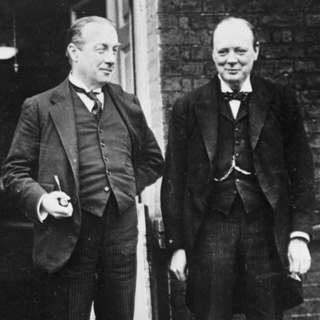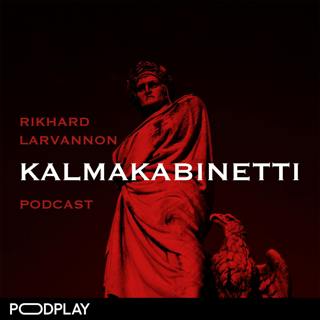
86. Abolition of the Slave Trade. By the Talents. Or Blunderers
Slavery: finally, the time had come for a major step to be taken. Oh, no, not the actual abolition of slavery itself. But at least the abolition of the trade in slaves. Funnily enough, that’s something Pitt might have taken on. But he didn’t. He seems to have been a man who understood that politics was the art of the possible. Though sometimes he saw as impossible what might have been in his grasp. Like the slave trade abolition. In the end, that fine move had to be undertaken by his successors. They were the Ministry of All the Talents. Or, depending on your point of view, the Ministry of all the Blunders. Illustration: ‘Am I not a man and a brother?’ Medallion designed for the British Anti-Slavery Campaign by Josiah Wedgwood and either William Hackwood or Henry Webber, 1787. Public domain. Music: Bach Partita #2c by J Bu licensed under an Attribution-NonCommercial-No Derivatives (aka Music Sharing) 3.0 International License
17 Huhti 202214min

85. England expects. And saves its neighbours
It’s time for Pitt’s second go as Prime Minister, and for another round of war in Europe. But Pitt was no longer the conquering hero he once had been. On the other hand, there was one notable moment of conquest during his second term in office: what remains the greatest naval victory in British History, the Battle of Trafalgar. Which, oddly enough, led to two fine illustrations of the ambiguities in men’s minds over the ideas of England and of Britain. Nelson at Trafalgar told his sailors that England expected them to do their duty. And, in response to the victory, Pitt referred to England’s saving itself by its own exertions. As neat a summing up as anyone could provide of the uneasy relations between the dominant nation of the United Kingdom and that Kingdom as a whole. Illustration: Frederick Stanfield Clarkson, The Battle of Trafalgar, 1836. Public domain in its source country on January 1, 1996 and in the United States. Music: Bach Partita #2c by J Bu licensed under an Attribution-Non Commercial-No Derivatives (aka Music Sharing) 3.0 International License
10 Huhti 202214min

84. Interludes
An episode about interludes… The first of these looked like the end of an era, when William Pitt the Younger stepped down as Prime Minister, after seventeen years in power, and still younger than any other British Prime Minister has been on even first taking office. It turns out, though, that seeing it as an end was premature. It was, indeed, an interlude. The other was the Peace of Amiens. The treaty signed in the northern French city brought an end to fighting between Britain and France, for the first time in nearly a decade. Sadly, however, that wasn’t to be an end either, but merely another interlude. Illustration: Henry Addington, First Viscount Sidmouth. Sir William Beechey, oil on canvas, engraved 1803. National Portrait Gallery 5774 Music: Bach Partita #2c by J Bu licensed under an Attribution-NonCommercial-No Derivatives (aka Music Sharing) 3.0 International License
3 Huhti 202214min

83. Dragging Ireland into the United Kingdom, and how that brought down its first Prime Minister
After talking about Britain’s biggest and most lucrative colony, India, we now turn our attention to its oldest, closest and most troublesome, Ireland. We've seen that Pitt had tried to establish free trade between the two islands. He failed, when the British parliament demanded concessions for British business that it was impossible for the Irish parliament to accept. So, faced with the impossibility of getting agreement between two parliaments, he decided it was time to have just one instead. Until then, Britain and Ireland had been technically two countries with a single king. Now Pitt pushed through legislation to bring them together into a single nation, as had happened with Scotland nearly a century earlier. To make the move more palatable to the Irish, he decided to accompany the measure with improvements to the political rights of Catholics. Catholic Emancipation was, however, still opposed by many, and above all by a still over-powerful king. Pitt had always previously managed to win him around to accept, if only grudgingly, positions he’d previously opposed. Not this time. After seventeen years in office and having just brought about the union of Britain and Ireland into the United Kingdom, Pitt had at last met an immovable obstacle. He felt he had no choice. He resigned as Prime Minister. And Catholic emancipation would have to wait nearly thirty years longer. Illustration: The Great Parliament of Ireland, Henry Barraud, John Hayter, Public domain, via Wikimedia Commons Music: Bach Partita #2c by J Bu licensed under an Attribution-NonCommercial-No Derivatives (aka Music Sharing) 3.0 International License
27 Maalis 202214min

82. Benefits of Empire in India
We’re back with Britain’s great imperial project in India, going great guns (often literally) despite the war in Europe. It was still in principle being run by England’s old East India company, though increasingly that was little more than a fiction behind which the British state exercised direct rule. There were more glorious wars against rebellious local leaders, where ‘rebellious’ meant ‘more inclined to exercise power themselves than have it exercised from London’. Governor General Cornwallis, who’d had such a bad time in America at the hands of other rebels, scored some successes in India, as did his successor Lord Mornington, aka Richard Wellesley. The younger brother of Mornington, far better known later by his own alias of Duke of Wellington, got some invaluable military experience out there, and explored some interesting new tactics, such as the use of terror against local villagers. On a more positive note, we also get to meet a British judge in India, a remarkable linguist, William Jones. He deeply respected local culture, learning Sanskrit and providing the first translations of some Hindu sacred texts into English. Above all, he was struck (as some others before him) by the similarities of languages from South Asia with most European languages, so today he’s generally seen as the father of international linguistics and of the study of the Indo-European language group. Illustration: Sir William Jones, by James Heath, after Sir Joshua Reynolds Stipple engraving, published 1799. National Portrait Gallery, D36735. Music: Bach Partita #2c by J Bu licensed under an Attribution-NonCommercial-No Derivatives (aka Music Sharing) 3.0 International License
20 Maalis 202215min

81. Austria out, Russia out, Pitt out, Nelson blind
Things just got worse and worse for the Austrians after the Battle of Marengo, until they were defeated again by the French, and much closer to home, at Hohenlinden in Bavaria. They made peace with France, as did Russia, leaving Britain as the only major power still in the Second Coalition, which was now all but dead. Britain did win a couple more victories, notably in Malta and then, with the Turks, over the isolated remnants of the French Army of Egypt. Most spectacularly, it won the great naval Battle of Copenhagen, where Nelson won undying fame for his laconic comment “I see no signal”, though the truth was slightly less creditable to him, and a lot more creditable to his commander than the legend allows. News of that victory would have been balm to William Pitt the Younger’s soul. But, oddly, he was no longer Prime Minister to receive it. After seventeen years, he’d gone two weeks earlier. Illustration: The British fleet off Kronborg Castle, Elsinore, 28 March 1801 [before the Battle of Copenhagen], by Nicholas Pocock, 1810. © National Maritime Museum, Greenwich, London. Music: Bach Partita #2c by J Bu licensed under an Attribution-NonCommercial-No Derivatives (aka Music Sharing) 3.0 International License
13 Maalis 202214min

80. Lucky and unlucky admirals and generals
A tale of good and bad luck among high-ranking military men. That’s the fortunate Admiral Nelson and his far less fortunate victim, the Neapolitan Admiral Caracciolo. And Napoleon as a general enjoying the good fortune of being saved by the far less fortunate Desaix. Plus the difficulties of building the Second Coalition, especially for a British diplomat who had to wade through to icy water to try to put it in place. Only for his bit to fail, followed by the whole thing rapidly beginning to unwind. Illustration: Death of General Louis Desaix by Jean Baptiste Regnault. This file has been identified as being free of known restrictions under copyright law, including all related and neighboring rights. Music: Bach Partita #2c by J Bu licensed under an Attribution-NonCommercial-No Derivatives (aka Music Sharing) 3.0 International License
6 Maalis 202214min

79. Duels of men and duels of nations
It’s a time for duels. The one between the nations you already know about, and we’re simply following its next stages. But the one between two men is more than a little strange, especially as one of them was the British Prime Minister. Also in this episode, we see Nelson hitting the big time with a major victory of his own. And Napoleon reaching for the big time, as he sets out to win supreme political power, to add to his lustre as a general. Illustration: Thomas Luny, ‘Battle Of The Nile August 1st 1798 At 10pm’ (the explosion of L’Orient). This work is in the public domain in its country of origin and other countries and areas where the copyright term is the author’s life plus 100 years or fewer. Music: Bach Partita #2c by J Bu licensed under an Attribution-NonCommercial-No Derivatives (aka Music Sharing) 3.0 International License
27 Helmi 202214min






















